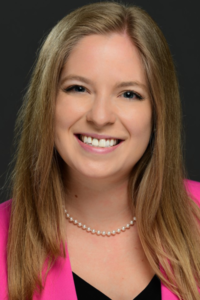The Council of Science Editors will hold its second Virtual Annual Meeting on May 3-5, 2021. The program will cover a wide range of useful topics, and once again J&J Editorial staff will play a significant role in organizing and delivering the meeting content.
The Co-Chairs of the Program Committee, Brittany Swett (Executive Director, J&J Editorial) and Emma Shumeyko (Managing Editor, PNAS), have assembled a compelling set of keynotes, concurrent sessions, and interactive roundtables for this year’s annual meeting.
J&J staff will be moderating and speaking at several points during the meeting:
1.1 – XML 101 for Journal Production Editors
Moderator: Julie Nash J&J Editorial, LLC
Presenter: Michael Casp J&J Editorial, LLC
Presenter: Karie Kirkpatrick, MS, MA American Physiological Society
“I’m excited to get to talk about this topic! XML is a powerful tool and a key part of our publishing infrastructure. We will equip our audience with some basic XML knowledge that they can apply to their projects. The session content is geared towards people who have little to no experience with XML but want to understand how it works. If you’re intimidated by XML or just want to learn more about it, this is the session for you.” -Michael Casp
The daily routine of the average journal production editor is driven heavily by XML requirements, yet many in this position possess a limited and often inaccurate understanding of the language and the breadth of its influence. This session will begin with an overview for XML novices that provides context for the role of XML in the publishing infrastructure, including an introduction to the terminology, a brief history of the development of the JATS standard, and a description of how XML-based workflows operate. The presentations that follow will focus on the potential repercussions of incomplete or improperly cultivated XML as well as suggestions for effective communication of XML-related requirements to copyeditors and authors.
1.4 – Open Access: A Global Conversation
Moderator: Jennifer Deyton J&J Editorial, LLC
Presenter: Rick Lee
Presenter: Glenn Hampson, MPA Open Scholarship Initiative
Presenter: Margaret (Peggy) Perkins ELS
Presenter: Magdalena Skipper, PhD DSc Springer Nature
Presenter: Mandip Aujla, MA The Lancet Global Health
Presenter: Ana Marusic, MD, PhD University of Split School of Medicine
At the last CSE Annual Meeting, CSE offered a session, as well as a congruent webinar late last year, covering the topic of Open Access from a global perspective. We have put together a panel of speakers from these sessions, as well as a few additional special guests, for a discussion of some of the current topics surrounding Open Access and its perception and practical application at publishers and societies around the globe. Join us to hear from experts on the subject, with perspectives ranging from large commercial publishers to prestigious societies from countries around the globe. We will discuss issues surrounding diversity and inclusion in relationship to Open Access from many different perspectives.
2.4 – Foster Diversity and Inclusion for Editorial Boards and Publishing Leadership
Moderator: Brit Stamey J&J Editorial, LLC
Presenter: Amy McPherson Botanical Society of America
Presenter: Frances E. Likis, DrPH, NP, CNM Journal of Midwifery & Women’s Health
Presenter: Celia Braithwait Wolters Kluwer
Presenter: Jessica Slater, MSc, PhD Science/AAAS
This session will focus on fostering Diversity, Equity, and Inclusion (DEI) at journals and societies specifically focusing on helping staff and editors encourage their leadership and editorial boards to take ownership of DEI initiatives at their societies and journals. Speakers will include publisher and society staff as well as an Editor in Chief to discuss how these initiatives can be encouraged at every level, but specifically focusing on journal leadership.
3.4 – Facilitating an Engaging, Productive Editorial Board Meeting – Not Just a Static Presentation of Stale Facts
Moderator: Carolyn M. de Court J&J Editorial, LLC
Presenter: Samir S. Shah, MD, MSCE Journal of Hospital Medicine
Presenter: Jennifer English John Wiley & Sons
Presenter: Dianne Dixon International Journal of Radiation Biology
“Discussion will cover suggested changes to avoid stale and unengaging editorial board meetings (a typical one-hour meeting where the publisher and EIC presents dry statistics, there isn’t a lot of discussion, and then it’s done). Specifically, we’ll discuss ways that editors-in-chief, managing editors, and publishers can make Editorial Board meetings (and other editor meetings) more engaging for participants. A focus of the session will also be aimed toward the recent fully remote space we are in and how to continue to encourage an engaging meeting virtually. I encourage anyone to attends and/or helps plan editorial board meetings for their journals to join in on the conversation!” -Carolyn deCourt
Statistics, reports, updates, and facts. A standard model for running editorial board meetings includes a one-hour meeting where the publisher and EIC present an abundance of dry statistics, there isn’t a lot of discussion, and then it’s over. Then following the meeting, reports are usually circulated to attendees.
What are some ways that EICs, MEs, and Publishers can make these meetings more engaging? For example, some journals make their meeting multiple hours long, and most of the meeting is discussion. Additionally, materials can be circulated ahead of the meeting, so that during the meeting the group can focus on discussion. Now that we are in this virtual space, how can we pivot to a virtual editorial board meeting and continue to keep engagement high? Join us as we discuss different tactics, ideas, and layouts to keep editorial board meetings engaging, productive, and memorable!
5.1 – The Ethics of Data Sharing
Moderator: Jennifer N. Workman J&J Editorial, LLC
Moderator: Jennifer Lee Mahar Origin Editorial
Presenter: Shelley Stall, MBA, EDME, CDMP, PMP American Geophysical Union
Presenter: Matthew Cannon Taylor & Francis Group
Presenter: Trevor Lane, MA, DPhil, PGCELT Committee on Publication Ethics
“What ethical issues should journals be mindful of as they implement data sharing policies and respond to new challenges? The Ethics Clinic will feature a panel of experts who will be presenting the most up to date information about data sharing as well as introducing ethical cases that can serve as learning opportunities for editors and publishers.” -Jennifer N. Workman
The Ethics Clinic is sponsored by the CSE Editorial Policy Committee and COPE. Our two organizations come together to provide up to date information for Ethical Issues in Publishing. This year the Ethics Clinic will focus on the ethics of data sharing. Data sharing has become an increasingly important topic in recent years as editors, publishers, societies, and individual journals, strive to promote transparency and best practice. Our expert panel will present cases that provide examples of the ethical dilemmas that are often encountered with data sharing and responsibility as it pertains to verifying data and data investigation when ethical issues arise. The information provided will be especially beneficial for publishers and editors who would like to learn more about editor responsibilities, investigations when ethical issues arise, and the verification process.
SC3 – Short Course on Publication Management
Moderator: Jennifer Deyton, MA J&J Editorial, LLC
Faculty: Helen B. Atkins American Chemical Society
Faculty: Emilie Gunn, MPS ASCO
Faculty: Kelly A. Hadsell KWF Editorial
Faculty: Elizabeth Blalock
The Short Course on Publication Management is designed to address the wide-ranging role of managing editors and publication managers as well as the daily challenges they face. This is the basic course for those newer to journal management. This year’s experienced faculty will reinforce efficient and effective methods for managing a journal by focusing on such topics as communications and personnel management, navigating relationships with EICs and Societies, peer review processes and tools, journal production workflow, essential metrics, ethical best practices, and effective leadership. Attendees are encouraged to bring specific questions from their own experience for discussion by faculty and other attendees. Active participation and exchange of ideas are encouraged.
For a conversation about this year’s program, don’t miss our podcast interview with Program Committee Co-Chair Brittany Swett!




